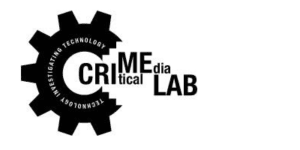Partner Organizations
The ISTAS21 Conference Committee is pleased to have partnered with the following interdisciplinary institutes and programs to lead conference programming related to the ISTAS21 Thematic Areas:
University of Waterloo Cybersecurity and Privacy Institute (CPI)
Cybersecurity and privacy are pressing problems in the digital systems that surround our everyday life. Repeatedly news is reported about vulnerabilities and exploits on the Internet, social networks, mobile computing, cyber-physical systems, artificial intelligence and critical infrastructures. The University of Waterloo has a long history of developing technologies, such as elliptic curve cryptography, private messaging, quantum-safe cryptography and hardware random number generators that have made a significant difference in designing computer systems that can withstand these attacks. These technologies are both foundational and widely deployed in commercial products.
The Waterloo Cybersecurity and Privacy Institute bundles the research activities on cybersecurity and privacy across all faculties. It follows an interdisciplinary, scientific approach developing solutions to the fundamental problems that have the potential to change the landscape of cybersecurity. The Institute encompasses 40 members across the university. Our researchers are working on overcoming challenges, such as the break-patch-and-break-again approach and developing software with fallible humans. We educate Canada’s future leaders in the fields of cybersecurity and privacy.
CPI will be leading programming related to the Security & Privacy theme.
Turkstra Chair in Urban Engineering, University of Waterloo
As the founding faculty of the University of Waterloo and Canada’s largest engineering school, Waterloo Engineering strives to ensure the civil engineers of tomorrow are the new urban leaders, entrusted by society to achieve a sustainable world, while ensuring better quality of life.
Based in the UWaterloo Department of Civil and Environmental Engineering, the Urban Engineering program is interdisciplinary, bridging engineering with other disciplines to advance teaching, policy and research toward sustainable cities and communities. This program is led by the Turkstra Chair in Urban Engineering, with a vision to build a community of engineering leaders and to develop urban sustainability literacy among students to motivate their technical specializations, empowering them to traverse beyond their disciplines to create livable futures. These efforts aim at increasing the role of civil engineers in urban governance and improving the career opportunities and authority of engineers in decision-making processes in cities.
The Turkstra Chair in Urban Engineering also runs the Douglas Wright Engineer-in-Residence (EIR) program, which brings in practicing engineers who serve in a leadership role in industry to foster mutually beneficial engagement between the academic community and the engineering practice community. This program aligns with the vision for urban engineering by offering expertise in a variety of contexts including leadership, mentorship, technical guidance, in addition to teaching support, and other roles that leverage specific skills of the EIR.
The Turkstra Chair in Urban Engineering will be leading programming related to the Sustainable Cities & Communitiestheme.
Critical Media Lab (CML), University of Waterloo
The Critical Media Lab (CML) is a cross-disciplinary, research-creation initiative developed in the English Department at the University of Waterloo. The CML fosters the creation of new media projects that explore the impact of technology on society and the human condition. It was launched quietly on campus in the fall of 2008, before occupying various locations in the city of Kitchener, Ontario. The CML is currently located in the Communitech Hub, at 151 Charles Street West.
CML will be leading programming related to the Ethical and Human Values in Emerging Technology theme.
University of Guelph OneHealth
Many of today’s biggest health challenges – climate change, food security, emerging diseases, antimicrobial resistance – are very complex and cannot be solved by focusing on only one area and using only one perspective. These challenges need a much broader approach, an approach like One Health.
One Health recognizes that we can improve life by understanding that the health of animals, humans, and the environment depend on one another. In a complex world like ours, the environment can refer to our physical environment and natural world, but it can also include social, political and financial conditions. One Health aims to create solutions that improve health in all these areas – animal, human and environment – not just one. These types of solutions require people across a variety of sectors and fields to work together. One Health in action works to keep people, animals, and our environments healthier and helps to make our world a better place for all.
At the University of Guelph, students and researchers are learning about and working in One Health. They are collaborating across disciplines and combining their unique perspectives to understand the countless factors that can impact health at the human-animalenvironmental interface. Ultimately, students and researchers in One Health at the University of Guelph are striving to tackle the complex health challenges of our day in order to improve life.
One Health will be leading programming related to the Health Systems theme.
University of Guelph Centre for Advancing Responsible and Ethical Artificial Intelligence (CARE-AI)
The Centre for Advancing Responsible and Ethical Artificial Intelligence (CARE-AI) is located in the heart of the Toronto-Waterloo corridor, at the University of Guelph (U of G). CARE-AI is unique, as it integrates ethics, governance and social responsibility with technical leadership. Our researchers span from faculty across all Colleges on UofG’s campus who are working in one or more of the three core pillars: AI methodologies; AI applications; and AI responsibility.
CARE-AI expands our research community’s expertise and fosters a network of over 90 researchers and scholars from across campus, as well as includes an advisory panel of academic and industry leaders. It will focus on applying machine learning and AI to U of G strengths, including human and animal health, environmental sciences, agriculture, agri-food, business, insurance and the bio-economy. CARE-AI researchers will investigate methodologies, including learning algorithms, human-computer interfaces, data analytics, sensors and robots. Researchers at CARE-AI work collaboratively with interdisciplinary departments, industry partners as well as other institutions to support CARE-AI’s ecosystem.
CARE-AI will be leading programming related to the Ethical and Human Values in Emerging Technology theme.
IEEE TechEthics Program
The overall technology ethics landscape covers three key areas:
- professional guidelines (e.g., codes of ethics) that help define intended behavior by professionals in the field;
- the impact of (and response to) professional behaviors in the context of those codes of ethics; and,
- ethical and societal impacts of the technologies themselves.
These are interdependent aspects, with each influencing and/or being influenced by the others.
The IEEE TechEthics program focuses on the third bullet, seeking to ensure that ethical and societal implications of technology become an integral part of the development process by driving conversation and debate on these issues. Since IEEE does not directly fund research, we instead seek to accelerate the generation of ideas, facilitate the vetting of those ideas, and, where applicable, drive consensus around those ideas. The IEEE TechEthics program achieves this through event production, content development, audience engagement and other activities.
Tech Ethics will be leading programming related to the Ethical and Human Values in Emerging Technology theme.






![OHI - thumbnail_Outlook-5cdzqby2.png[5] OHI - thumbnail_Outlook-5cdzqby2.png[5]](https://attend.ieee.org/istas-2021/wp-content/uploads/sites/314/2021/03/OHI-thumbnail_Outlook-5cdzqby2.png5_-457x119.png)

